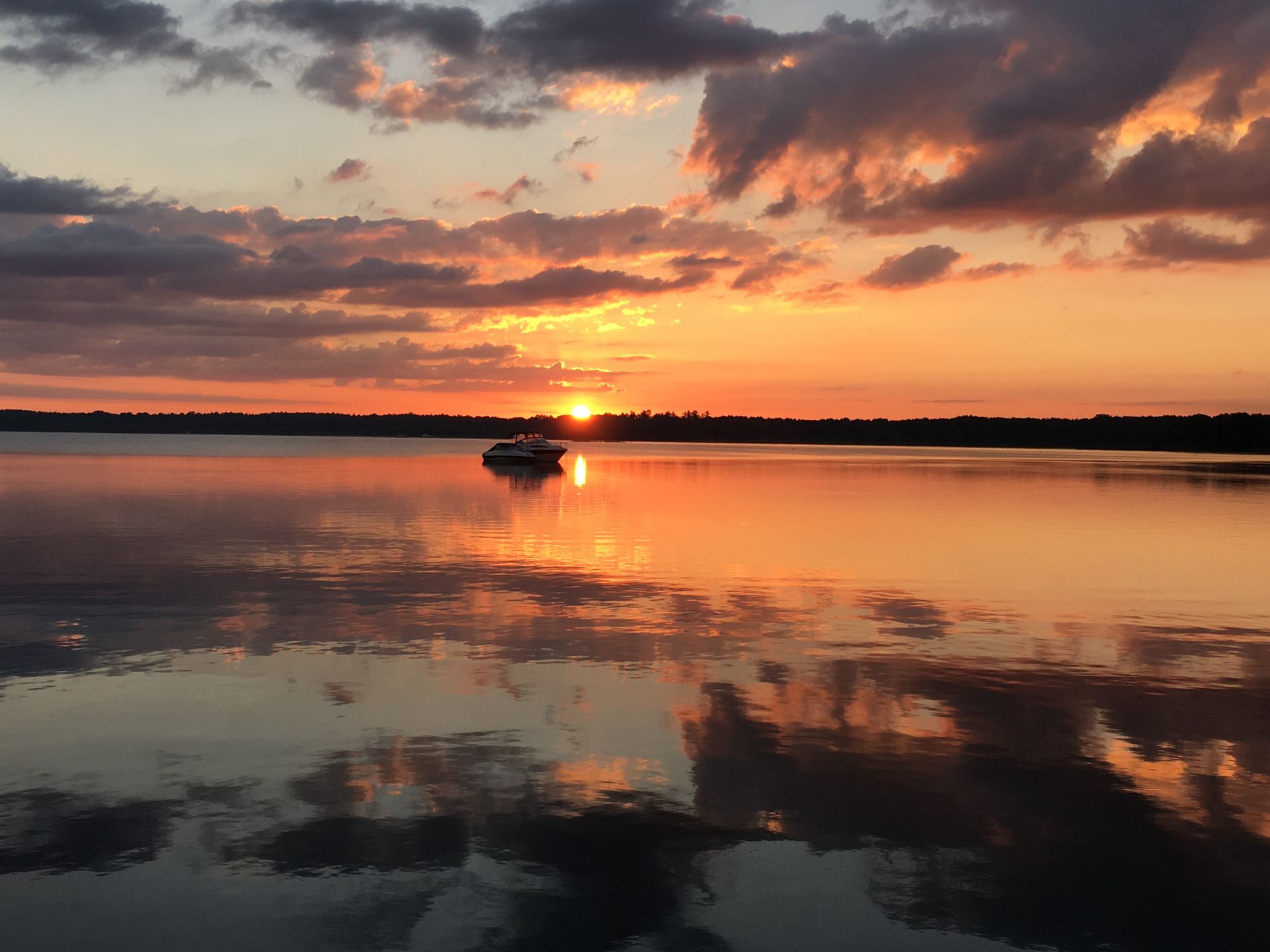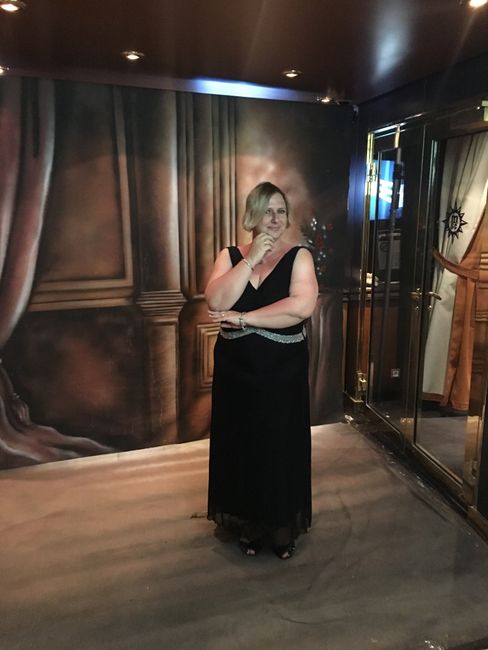MSC Magnifica - Bergen
Објавено: 12.08.2018
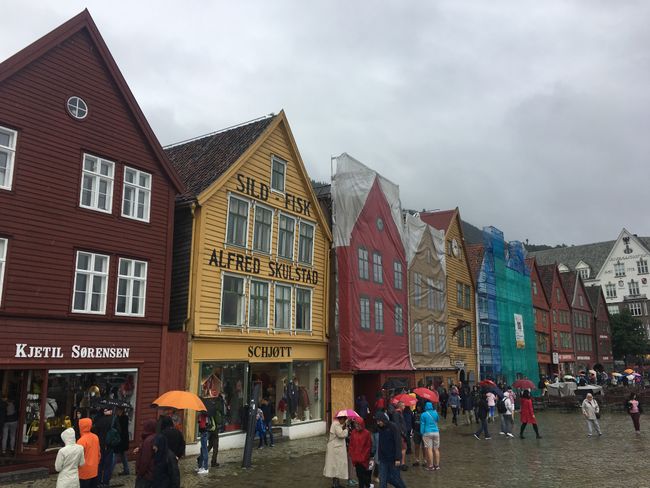
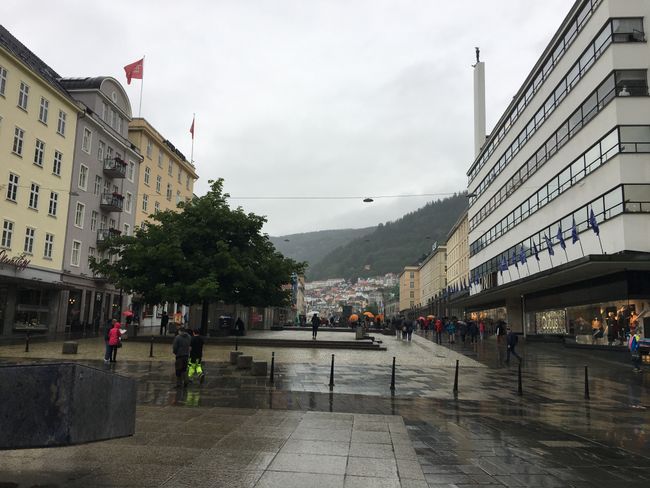
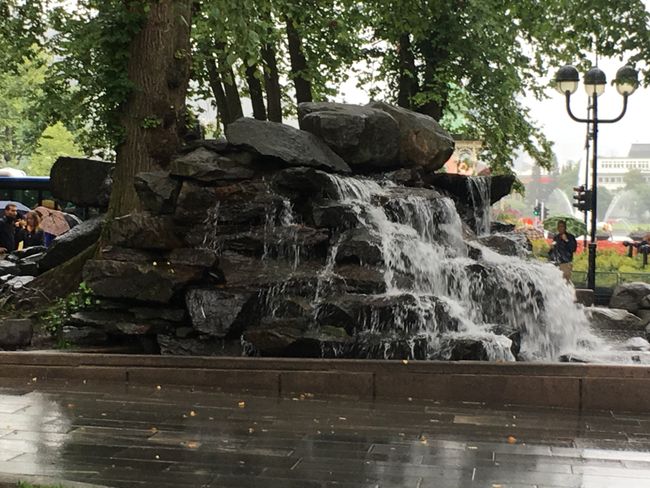
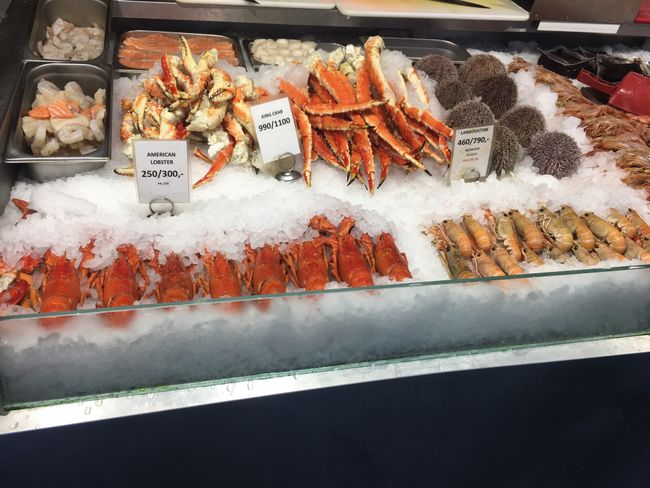
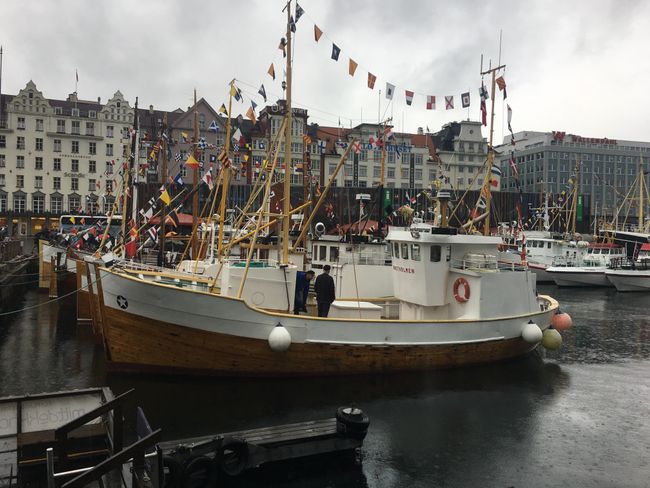
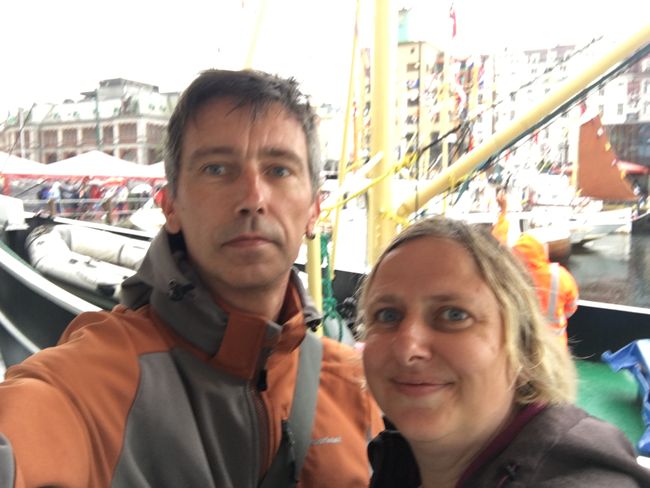
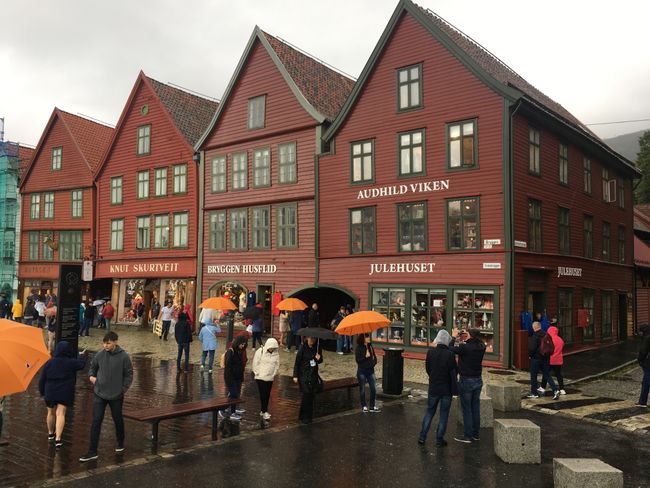
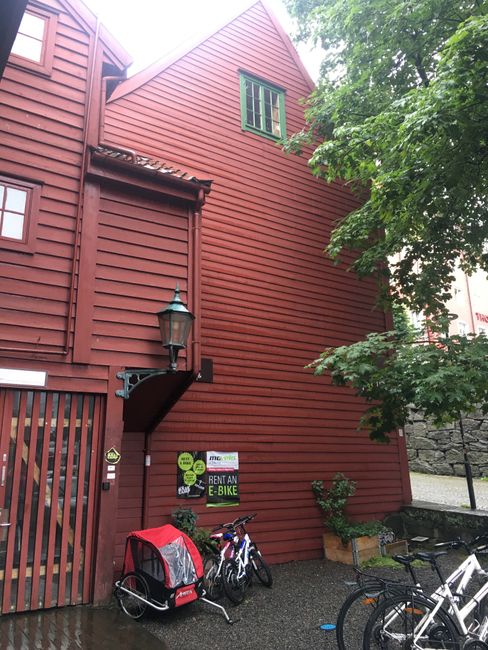
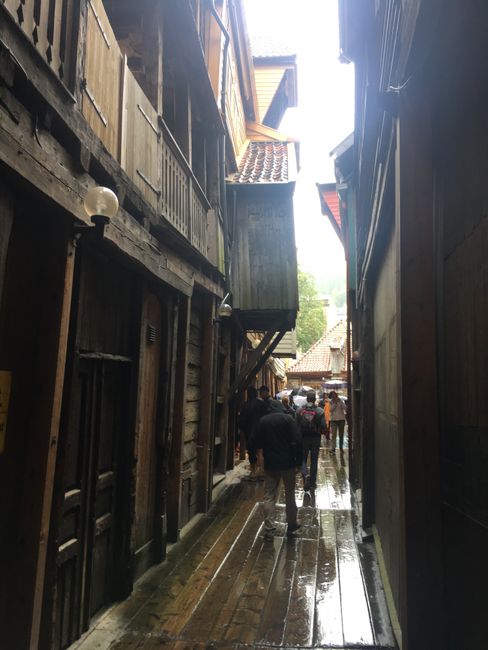
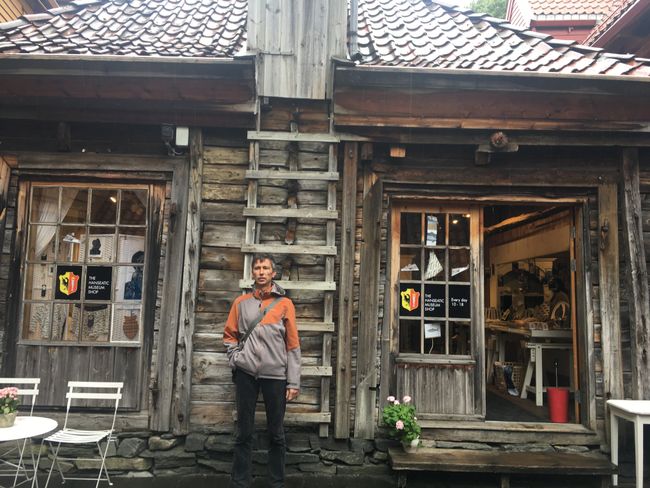
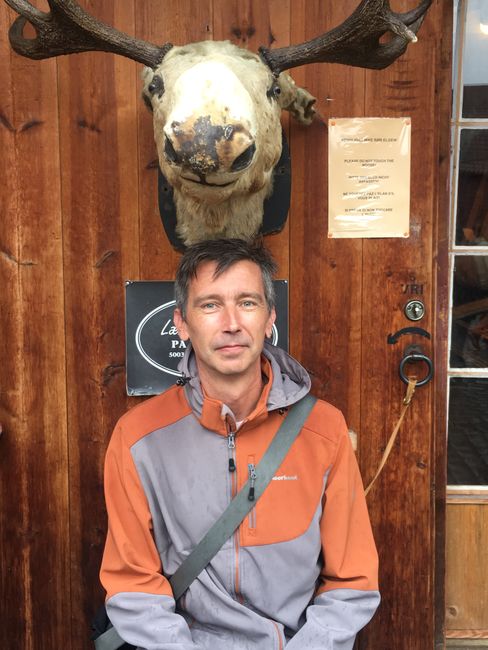
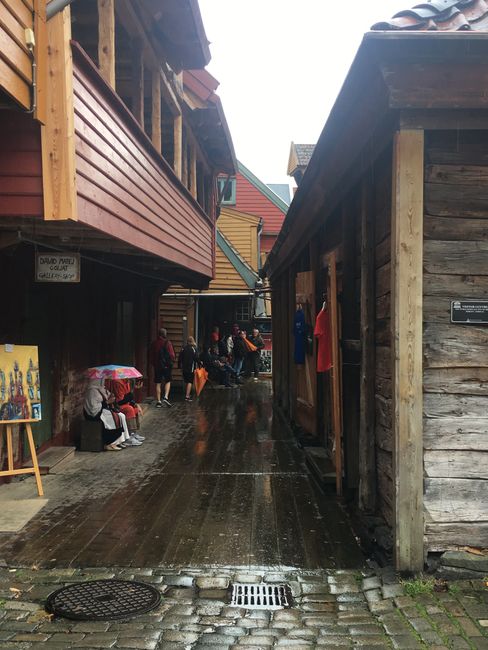
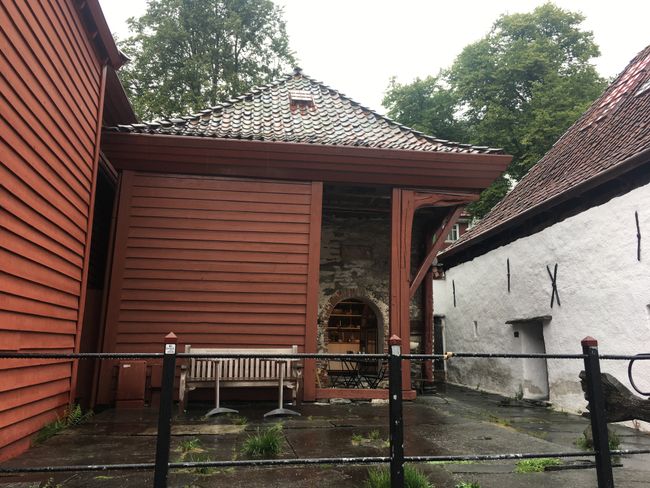
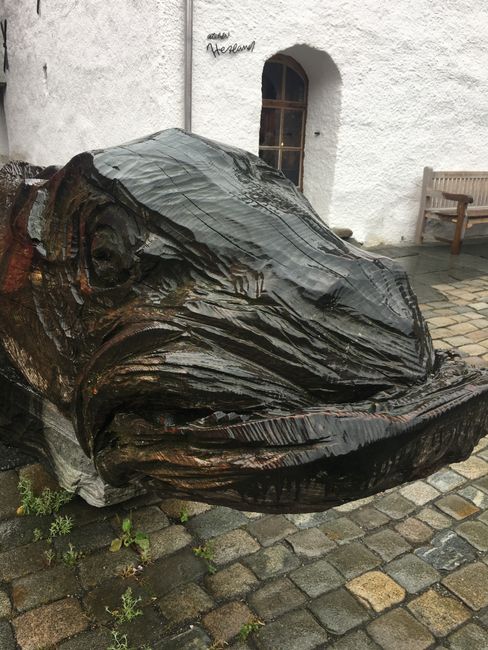
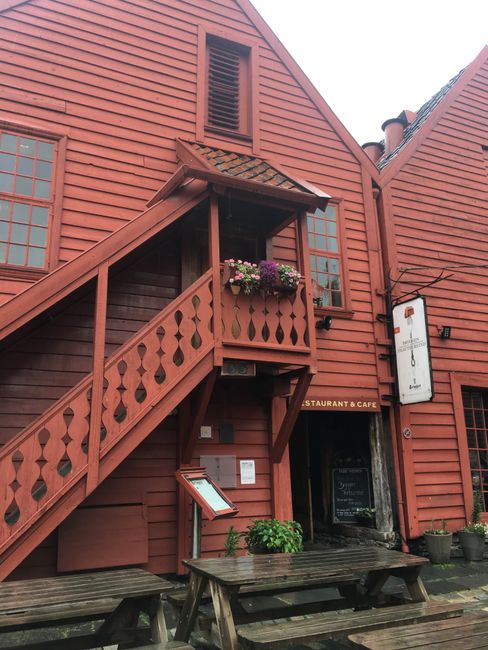
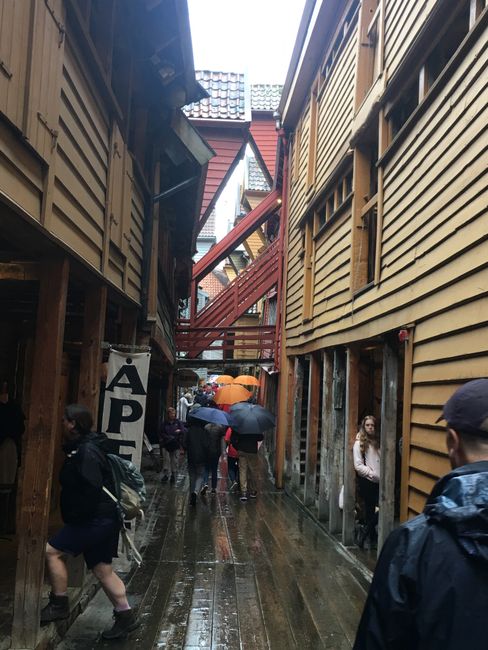
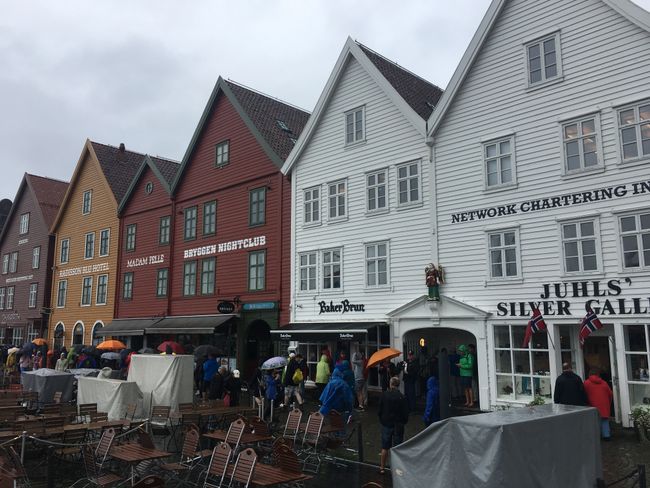
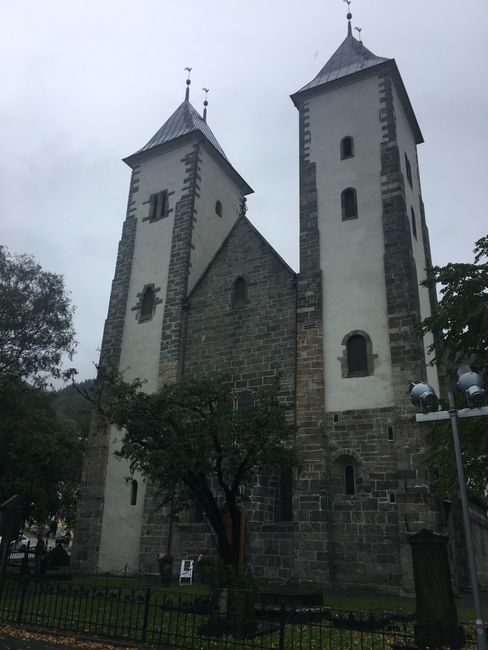
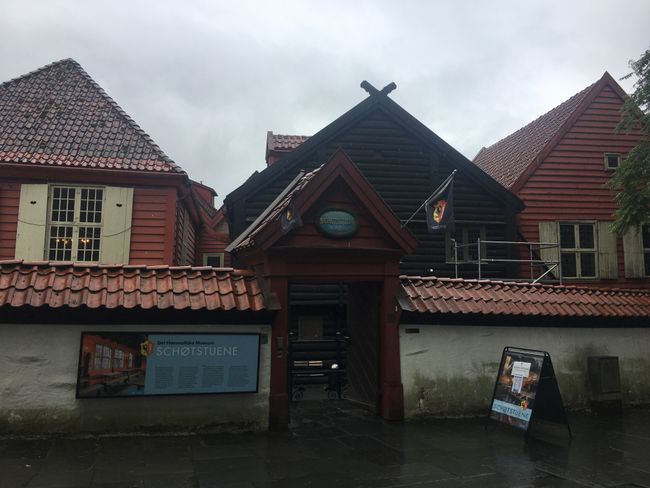
Претплатете се на билтенот
Friday, August 3, 2018 Bergen
Bergen is also known as the gateway to the fjords. The city is the second largest city in Norway, a UNESCO World Heritage site, about 900 years old, and the rainiest city in Europe. And what a surprise, it was raining heavily when we reached the port of Bergen. The hike from the previous day was still in our bones and we had a hard time getting out of bed. Maybe it's because Bergen and we didn't become friends and the much-praised charm of the city didn't captivate us. That's how it is when traveling. Cities surprise and cities disappoint. Bergen and us, a second attempt is certainly necessary. On this day, Bergen presented itself as just wet and crowded. Since we were in the container port, we were not allowed to walk through the port area on foot. Shuttles buses took us to the gates of the port. We headed towards the fish market. However, the map we got at the reception was completely soaked and unusable after only 500 meters. Fortunately, the locals are very helpful and showed us the right way. So from the harbor, just straight ahead until you reach the big church, then turn left until you see the fish market. Along the way, you walk along the main shopping street of Bergen with a great fountain and, in our case, brass music. Without rain, it is certainly very relaxing. At the fish market, you can get everything the sea has to offer, and it's so fresh that you can choose it directly from the water basins. Tons of tourists squeezed through the alleys between the market stalls. Everywhere, small tents with heaters were set up where you could sit and eat the offered fish. However, a pretty expensive pleasure. In Norway, prices for food are quite high. In the fishing harbor itself, there was a colorful hustle and bustle with countless fishing boats and excursion boats.
In Bergen itself, there are about 270,000 inhabitants. The roots of the old city go back to the Viking Age. As one of the main seats of the Hanseatic League, Bergen was the center of flourishing trade between Norway and the rest of the world for several centuries. A striking remnant from this time is the old waterfront of Bryggen. Today you can find numerous restaurants, pubs, handicraft shops and historical museums there. Unfortunately, during our visit, a part of the famous row of houses was scaffolded. A sign informed the interested visitor about extensive planned restoration work in the quarter. We strolled through the narrow alleys and admired the old wooden houses. Already in 1343, the first trading post for dried fish was established here. The Hanseatic Kontor, composed of more than twenty adjacent yards, quickly became a complete residential and trading district. Burned down several times and threatened with demolition, the houses were rebuilt from 1965 onwards. Since 1979, the more than 60 buildings have been under the protection of UNESCO and are a natural UNESCO World Heritage site. I don't think I need to mention that it felt like all the tourists in Bergen were there at the same time on this day. Definitely worth a visit is the nearby Marienkirche and the Finnegården trading house, built in 1704, which houses the Hanseatic Museum. If you haven't figured it out yet, you will find out here at the latest that Bryggen was originally called "bridge" and was built by German merchants.
The city is surrounded by 7 mountains. With the Fløibanen funicular, you can reach the mountain plateau of Fløyen, which offers a panoramic view and hiking trails. Unfortunately, the mountain station was so surrounded by clouds that you could only imagine it. Accordingly, we had little desire to go up. The huge queue at the funicular then confirmed our decision not to go to the mountain. A good decision, as it turned out. From above, due to the weather, you couldn't really see anything of Bergen.
Drenched and well-ventilated, we decided to go back to the ship. After lunch at the restaurant, we followed the ritual walk to the sauna. The sauna pass turned out to be a good decision, especially now. We had paid 59.00 euros per person for it. However, at MSC, the sauna can only be used with swimwear, which was very unusual at the beginning. The Aura Spa consisted of a relaxation room with 3 whirlpools and 6 loungers, 2 small Finnish saunas for a maximum of 6 people each, 2 steam baths, and some showers. Not big but sufficient. While the relaxation room with the whirlpool was well used and the loungers were almost never available, we always had the Finnish sauna to ourselves. Sauna seemed to be not so popular among the other nationalities on the ship.
Претплатете се на билтенот
Одговори
